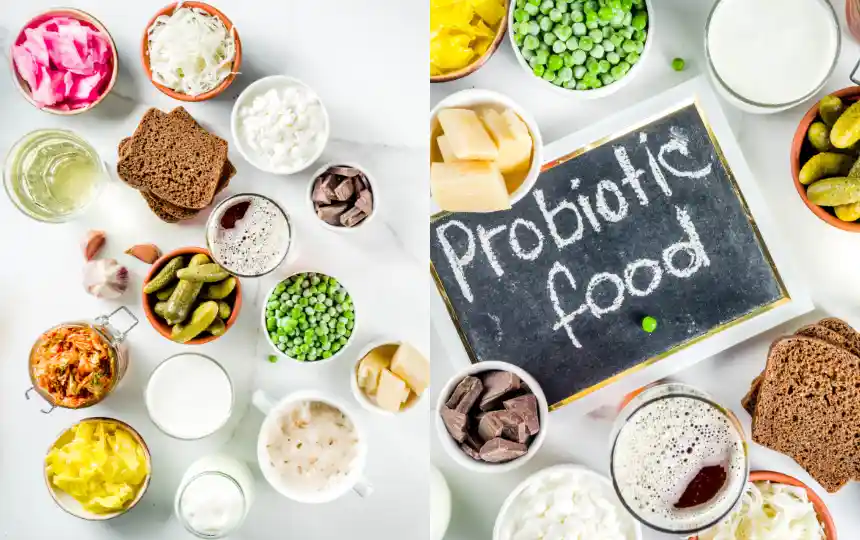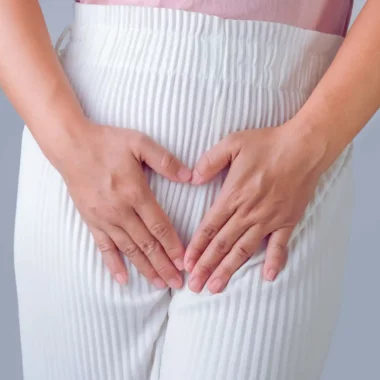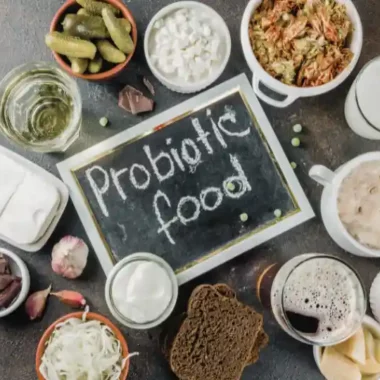Introduction to Probiotics for Women
Lets dive into the world of probiotics and focus on the unique advantages of Probiotics for Women. In recent years, probiotics have surged in popularity, and for a good reason. These beneficial bacteria are crucial in maintaining overall health, with particular benefits for women. Probiotics are a powerhouse of health benefits, from improving digestive health to enhancing the immune system and even offering support in women-specific conditions.
What are Probiotics?
Probiotics are live microorganisms, primarily bacteria, similar to beneficial microorganisms in the human gut. They are often called “good” or “friendly” bacteria. Probiotics can be found in various foods, especially fermented ones, and are also available as dietary supplements.
Benefits of Probiotics for Women
- Improved Digestive Health: Probiotics help balance the gut flora, which is crucial for digestion, nutrient absorption, and bowel regularity.
- Boosted Immune System: A large part of the immune system is in the gut. By enhancing gut health, probiotics indirectly strengthen the immune response.
- Urinary Health: Regular intake of probiotics has been linked to a reduced risk of urinary tract infections (UTIs), a common issue for many women.
- Vaginal Health: Probiotics help maintain the natural balance of bacteria in the vaginal area, reducing the risk of yeast infections and bacterial vaginosis.
- Management of Menopause Symptoms: Emerging research suggests that probiotics may help alleviate some menopausal symptoms, such as mood swings and bone density loss.
- Skin Health: Thanks to their anti-inflammatory properties, Probiotics can improve skin conditions such as acne, rosacea, and eczema.
Sources of Probiotics
- Fermented Foods: Yogurt, kefir, sauerkraut, kimchi, miso, and tempeh are excellent natural sources of probiotics.
- Supplements: Probiotic supplements are available in various forms, including capsules, tablets, and powders.
How to Choose the Right Probiotic
- Strain Diversity: Look for products that contain a variety of bacterial strains, each offering different health benefits.
- CFU Count: The potency of probiotics is measured in colony-forming units (CFUs). A higher CFU count is sometimes better; it’s more about the quality and viability of the strains.
- Women-Specific Formulas: Some probiotics are formulated specifically for women, focusing on vaginal and urinary health.
- Quality and Purity: Opt for products from reputable brands that undergo third-party testing for quality assurance.
How to Incorporate Probiotics into Your Diet
- Start Slow: Begin with a lower dose of probiotics and gradually increase as your body adjusts.
- Dietary Diversity: Include a variety of fermented foods in your diet to get a broad spectrum of probiotics.
- Consistency: Regular consumption is critical to maintaining the benefits of probiotics.
- Stay Hydrated: Drinking plenty of water can help the probiotics move through your gut more effectively.
Precautions and Side Effects
While probiotics are generally safe, they can cause bloating, gas, or mild discomfort, especially when starting out. People with immune system issues or serious underlying illnesses should consult a healthcare provider before taking probiotics.
Conclusion
Probiotics offer a simple yet powerful way to enhance women’s health. By understanding the specific needs of their bodies and incorporating the right strains of probiotics, women can reap numerous health benefits, leading to improved wellness and quality of life.
Remember, while probiotics can be incredibly beneficial, they are just one part of a holistic approach to health. A balanced diet, regular exercise, and adequate sleep are equally important for maintaining optimal health.
Frequently Asked Questions About Probiotics for Women
What exactly are probiotics?
Probiotics are live microorganisms, primarily bacteria, that benefit your health, especially your digestive system. They are often called “good” or “friendly” bacteria because they help keep your gut healthy.
How do probiotics benefit women specifically?
For women, probiotics offer several specific benefits, including improving vaginal health, reducing the incidence of urinary tract infections, aiding in digestion, supporting immune function, and potentially easing menopausal symptoms.
Can probiotics help with digestive issues?
Yes, probiotics can help balance the gut flora, which plays a vital role in digestion and can alleviate issues like irritable bowel syndrome (IBS), bloating, and constipation.
Are there any side effects of taking probiotics?
Probiotics are generally safe and well-tolerated. However, some people may experience mild side effects like bloating or gas, especially when they first start taking them.
How do I choose the right probiotic supplement?
Look for supplements with diverse bacterial strains and an appropriate colony-forming unit (CFU) count. Consider women-specific formulas for targeted benefits. Always opt for products from reputable brands.
Can I get probiotics from food?
Absolutely! Fermented foods like yogurt, kefir, sauerkraut, kimchi, and miso are excellent sources of probiotics.
How often should I take probiotics?
Probiotics can be taken daily. Consistent and regular consumption is key to achieving the best results.
Should I take probiotics with food or on an empty stomach?
Taking probiotics on an empty stomach is generally recommended when the stomach’s acid content is lower. However, some specific probiotic strains may have different recommendations, so it’s good to check the label or consult a healthcare provider.
Can pregnant or breastfeeding women take probiotics?
Probiotics are generally considered safe for pregnant or breastfeeding women, but it’s always best to consult with a healthcare provider before starting any new supplement.
Do probiotics help with weight loss?
Some studies suggest that probiotics can impact body weight and belly fat. However, probiotics should be part of a broader lifestyle approach, including diet and exercise, for effective weight management.











